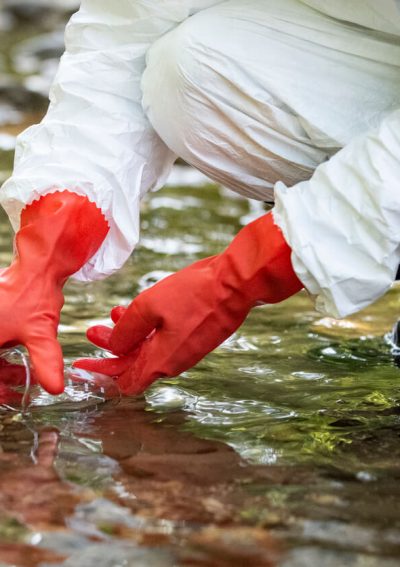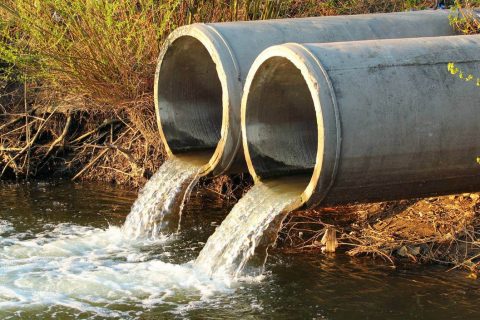VA Compensation for Camp Lejeune Water Contamination
The VA offers disability and health benefits for veterans and families exposed to contaminated water at Camp Lejeune from 1953 to 1987. Cancer, for example, is eligible for veteran disability benefits, but others, like neurobehavioral effects, only qualify for out-of-pocket reimbursement.

VA Benefits for Camp Lejeune Veterans
There are two types of VA benefits available to Camp Lejeune veterans – disability and reimbursement for out-of-pocket health care costs. Disability benefits are only for veterans, and both veterans and family members may qualify for health care benefits.
Disability benefits cover seven types of presumptive cancers and Parkinson’s disease. These benefits include compensation payments and health care. Health care benefits don’t include any compensation payments, but the VA may pay the veteran or family member back for out-of-pocket health care costs for 15 presumptive conditions.
Under The Camp Lejeune Act of 2012, the VA provides health care assistance to Veterans and family members who lived on Camp Lejeune. But the veterans and family members must meet service date requirements, meet the time-on-station requirements, and must have one of the conditions on the VA’s list.
Who Qualifies for VA Disability Benefits for Camp Lejeune Water Contamination?
Veterans who served at Camp Lejeune or MCAS New River, were not dishonorably discharged and have at least one of the VA’s presumptive conditions may qualify for disability benefits for Camp Lejeune water contamination.
In addition, the veteran must have served for at least 30 cumulative days from August 1953 through December 1987. The VA requires proof of service and diagnosis of one or more presumptive conditions.
- Adult leukemia
- Aplastic anemia and other myelodysplastic syndromes
- Bladder cancer
- Kidney cancer
- Liver cancer
- Multiple myeloma
- Non-Hodgkin’s lymphoma
- Parkinson’s disease
People who qualify for potential disability benefits include veterans, reservists and guardsmen. Under the current legislation, family members aren’t eligible for disability compensation. But they may file a claim for health care cost reimbursement.
Why Is Presumptive Service Connection Important?
Presumptive service connection is important because it means that the veteran doesn’t have to prove water contamination caused their health condition. The link between the conditions and water contamination is already established through studies and research.
All veterans and families do have to provide proof of diagnosis and records that show that they lived on base for at least 30 cumulative days during the established time period. The list of conditions the VA covers may expand in the future.
How to Apply for VA Disability Benefits
Veterans apply for disability benefits through VA.gov, an accredited veteran’s representative or through their VA regional office. When applying, be sure to state you’re applying specifically for one or more of the Camp Lejeune presumptive illnesses.
Claimants can apply online or print out forms and mail them in.
- Proof of service, such as military records, that show you served at Camp Lejeune or MCAS New River. The records must show that you served for at least 30 days from August 1953 through December 1987.
- Proof of diagnosis of one or more of the eight illnesses on the VA’s presumptive disability condition list. Medical records or reports from your doctor’s office will work.
Service members who want to apply for disability claims related to conditions that are not presumptive conditions may still apply for disability.
Veterans will need to provide a current medical professional’s diagnosis and evidence connecting their non-presumptive condition to toxic water contamination at Camp Lejeune, such as current scientific studies or opinions of experts.
Qualifying for Camp Lejeune VA Health Care Benefits
Veterans who served at Camp Lejeune or MCAS New River and their family members may qualify for health benefits if they were on base for at least 30 cumulative days from 1953 to 1987.
The VA may reimburse the veteran or family member for out-of-pocket health care costs related to treatment of 15 presumptive conditions.
- Bladder cancer
- Breast cancer
- Esophageal cancer
- Female infertility
- Hepatic steatosis
- Kidney cancer
- Leukemia
- Lung cancer
- Miscarriage
- Multiple myeloma
- Myelodysplastic syndromes
- Neurobehavioral effects
- Non-Hodgkin’s lymphoma
- Renal toxicity
- Scleroderma
Veterans can file for disability compensation and health care reimbursement for conditions not eligible for disability.
Health care reimbursement is currently the only benefit available to family members and dependents. To qualify, family members have to provide proof of their relation to the veteran and medical records.
How to File a Camp Lejeune Claim for VA Health Care Benefits
Veterans and family members can fill out the Camp Lejeune Family Member Program Application (VA Form 10-10068) to apply for their Camp Lejeune health benefits.
Along with the claim form, family members must provide evidence that proves their relationship to the veteran. This can be a marriage certificate, birth certificate or adoption papers.
In addition, they must provide proof that they lived on base for at least 30 cumulative days from August 1953 through December 1987. The VA accepts documents such as housing records, tax forms, military orders or utility bills.
Providing a Camp Lejeune Family Member Program Treating Physician Report (VA Form 10-10068b) isn’t required but can help the VA determine your eligibility.
The VA also requires medical records that show a diagnosis of one or more of the 15 conditions listed above and the date of diagnosis and treatment. Also include receipts or other proof that the claimant paid for health care expenses.
- Between January 1, 1957, and December 31, 1987: The VA reimburses care received on or after August 6, 2012, and up to 2 years before the date of your application
- Between August 1, 1953, and December 31, 1956: Care received on or after December 16, 2014, and up to 2 years before the date you apply for benefit can also be reimbursed.
The Camp Lejeune Family Member Program Application form and any accompanying documents can be faxed to 512-460-5536 or mailed in.
The form can be mailed to the VA at the following address:
Department of Veterans AffairsFinancial Services Center
PO Box 149200
Austin, TX 78714-9200
What to Do If Your Camp Lejeune VA Benefits Were Denied?
If your VA benefits were denied you can contact an accredited Veterans Service Officer (VSO), attorney or claims agent. These professionals know how to work with the VA and can help you file an appeal.
You may also wish to file a Camp Lejeune lawsuit for compensation against the government. New legislation called the PACT Act of 2022 expands presumptive conditions for veterans exposed to toxic chemicals, and it includes the Camp Lejeune Justice Act of 2022.
This Camp Lejeune legislation signed into law in August 2022 allows veterans and families impacted by the toxic water at Camp Lejeune to sue the United States for illnesses they suffered. Lawyers are accepting cases now. If you want to file a claim, contact an attorney right away to preserve your right to file a lawsuit because there are time limits to file.
8 Cited Research Articles
Consumernotice.org adheres to the highest ethical standards for content production and references only credible sources of information, including government reports, interviews with experts, highly regarded nonprofit organizations, peer-reviewed journals, court records and academic organizations. You can learn more about our dedication to relevance, accuracy and transparency by reading our editorial policy.
- White House. (2022, August 10). FACT SHEET: President Biden Signs the PACT Act and Delivers on His Promise to America’s Veterans. Retrieved from https://www.whitehouse.gov/briefing-room/statements-releases/2022/08/10/fact-sheet-president-biden-signs-the-pact-act-and-delivers-on-his-promise-to-americas-veterans/
- Department of Veterans Affairs. (2022, March 8). Get help filing your claim or appeal. Retrieved from https://www.va.gov/disability/get-help-filing-claim/
- Department of Veterans Affairs. (2022, March 7). Camp Lejeune water contamination health issues. Retrieved from https://www.va.gov/disability/eligibility/hazardous-materials-exposure/camp-lejeune-water-contamination/
- Herridge, C & Kegu, J. (2022, February 16). "Deny until they die": Some veterans say VA wrongly rejects claims for illnesses they blame on Camp Lejeune's contaminated water. Retrieved from https://www.cbsnews.com/news/va-camp-lejeune-contaminated-water-veterans-disability-claims/
- Department of Veterans Affairs. (2015). Camp Lejeune Family Member Program Treating Physician Report. Retrieved from https://www.va.gov/VA_Form_10-10068b.pdf
- Department of Veterans Affairs. (2015). Camp Lejeune Family Member Program Application. Retrieved from https://www.va.gov/VA_Form_10-10068.pdf
- Department of Veterans Affairs. (n.d.). Veteran and family health & disability benefits. Retrieved from https://www.publichealth.va.gov/docs/exposures/camp_lejeune_brochure.pdf
- Yale Law School. (n.d.). Benefits for Veterans Disabled by Camp Lejeune Water Contamination. Retrieved from https://law.yale.edu/studying-law-yale/clinical-and-experiential-learning/our-clinics/veterans-legal-services-clinic/camp-lejeune
Calling this number connects you with a Consumer Notice, LLC representative. We will direct you to one of our trusted legal partners for a free case review.
Consumer Notice, LLC's trusted legal partners support the organization's mission to keep people safe from dangerous drugs and medical devices. For more information, visit our partners page.
844-526-0648

